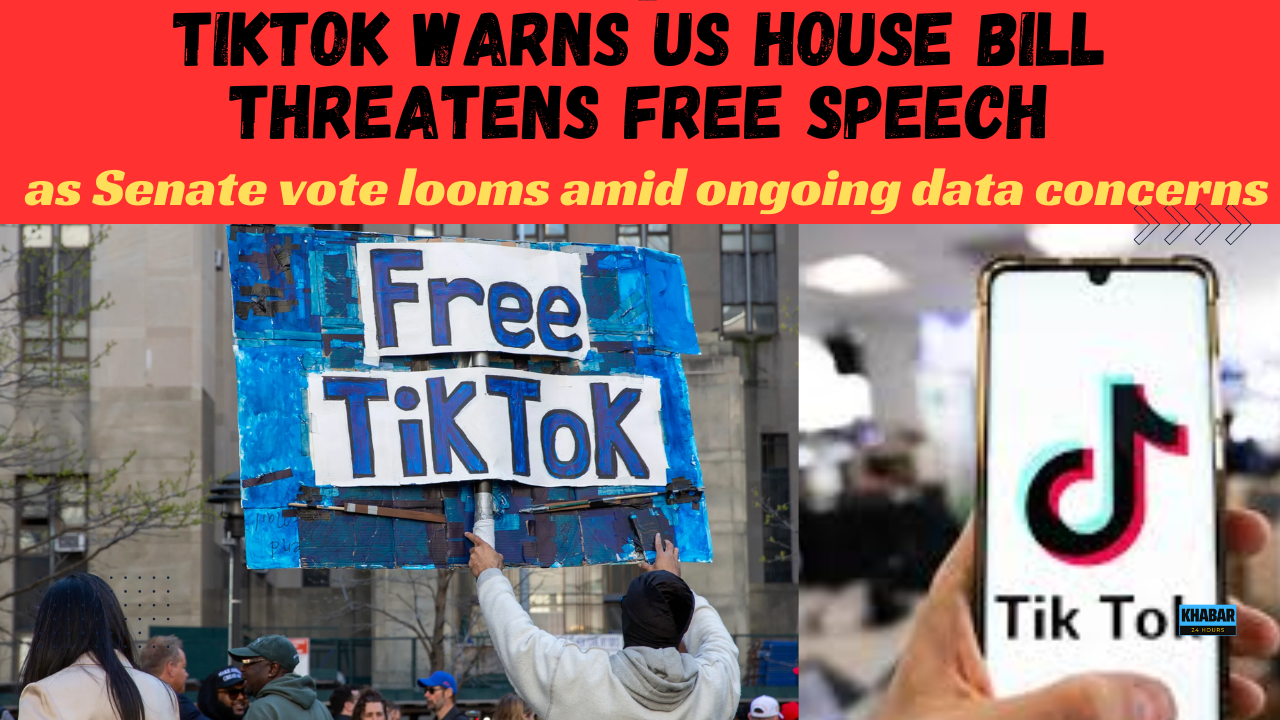
Reuters reported that TikTok has reiterated its concerns that if a bill banning the social media app in the United States is approved, it would infringe on the “free speech” rights of American citizens.
TikTok expressed disappointment, stating, “It is unfortunate that the House of Representatives is using the cover of important foreign and humanitarian assistance to once again push through a ban bill that would infringe upon the free speech rights of 170 million Americans.”
On April 20, the US House of Representatives passed a bill with a significant majority of 360 to 58 votes, which could potentially ban the popular video social media platform from the country if it doesn’t divest from its Chinese parent company, Bytedance.
The bill is now headed to the Senate, where it is expected to undergo voting in the coming days. US President Joe Biden has signaled his readiness to endorse the legislation once it reaches his desk.
Lawmakers from both Republican and Democratic parties, along with the Biden administration, have expressed concerns about TikTok due to national security apprehensions. They worry that China could pressure the company into sharing data from its 170 million American users.
To accelerate the process of potentially banning the app, legislators have included TikTok in a broader foreign aid package, following obstacles faced by a previous standalone bill in the Senate.
TikTok had previously criticized an earlier bill that failed to progress in the Senate, arguing that it would suppress the voices of millions of Americans. The platform also opposed a state-level ban in Montana last year, citing violations of the First Amendment.
TikTok continues to assert that it has never shared American data and vows not to do so in the future.
Democratic Senator Mark Warner, chair of the Senate Intelligence Committee, has raised concerns about TikTok potentially being used as a propaganda tool for the Chinese government, especially among young users seeking news.
In an interview with CBS News, he stated, “The notion that we would provide the Communist Party with such a powerful propaganda tool, along with access to the personal data of 170 million Americans, poses a national security threat.”
The American Civil Liberties Union (ACLU) has criticized the House bill, citing concerns about free speech.
The Knight First Amendment Institute at Columbia University has also voiced opposition to the latest bill, arguing that its effectiveness is limited. They contend that adversaries like China could still access American data through brokers and utilize US-based social media platforms for disinformation campaigns.
Some Democrats have raised questions about the constitutionality of banning TikTok, advocating instead for comprehensive data privacy laws.
Democratic Representative Ro Khanna expressed skepticism about the legal feasibility of a TikTok ban, citing constitutional protections for free speech.
In a previous vote on March 13, the House had given ByteDance around six months to divest TikTok’s US assets or face a ban. The newly passed legislation extends this deadline to nine months, with a possible three-month extension subject to the president’s assessment of divestment progress.
Maria Cantwell, chair of the Senate Commerce Committee, expressed her support for the latest bill after requesting revisions to certain aspects of the March 13 bill.
The ownership of TikTok was also a topic of discussion during a recent call between President Biden and Chinese President Xi Jinping, during which Biden raised concerns about the app’s ownership.

